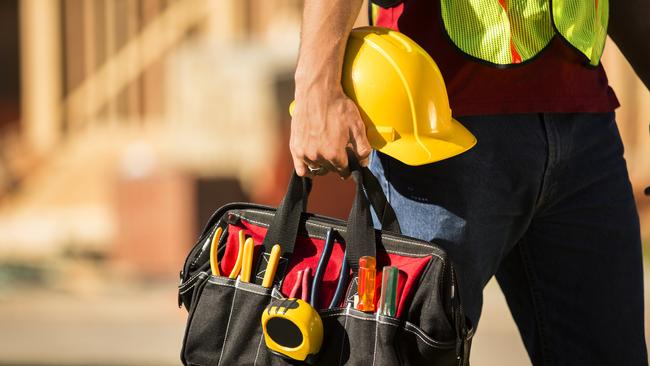Construction, restaurants lead business collapses
Construction and food services have suffered the most losses amid nearly 200 company busts across the nation in the last month latest figures reveal.

Construction remains the hardest-hit industry across Australia for business insolvencies, with dozens collapsing in January.
The drop in construction work comes amid a broader downturn in the high-rise commercial and residential market, marked by the explosion of industry titan Grocon, which had more of its operations go into insolvency on New Year’s Eve.
January has marked the first month for many businesses trading without the extended temporary debt protections imposed by the federal government in the early days of the pandemic.
Following the 27 construction collapses, accommodation and food services were the second worst COVID crunch casualty.
A further 27 operators in the food services and accommodation sector have joined the list of insolvencies since December.
Restrictions imposed and relaxed in ad hoc measures across the economy and throughout the year have played havoc with the hospitality sector.
Trailing the pack as the third worst for business busts in January is financial and insurance services, with 18 ending operations during January. NSW leads Australia for business insolvencies in the latest weekly data from the corporate regulator.
Data from the Australian Securities & Investments Commission shows 192 business busts across Australia in January, down 51.6 per cent from the same month in 2020 just as the COVID-19 wave was threatening to crash down.
The data reveals 72 businesses went bust in NSW in the month of January.
This was down 48.9 per cent from the 141 that went out of business in the same month last year.
The state leads Australia with 831 business insolvencies in the financial year, which means it joins many other states to come in more than 50 per cent below their pre-pandemic peaks.
NSW was swiftly followed by Victoria, where 51 businesses went to the wall in January but still a long way from the toll recorded the year before, when 124 operations were forced to close.
At least 660 businesses have shut their doors in Victoria in the financial year after the state was savaged by long months of lockdown.
Victorian businesses have benefited from an extension of COVID-19 relief, including payroll relief payments by the Victorian government to businesses.
Western Australia recorded 21 business busts in January, down almost a third from the same month in 2020.
South Australia was closest to its pre-pandemic levels in January, notching up 14 closures, barely a nudge on the 16 that were recorded going bust in the state the year before.
Queensland was the state furthest from its pre-pandemic heights, where 60.6 per cent fewer businesses were recorded going bust in January.
The Sunshine State recorded only 28 business insolvencies in the month, a world away from the 71 recorded in the same month last year. Between them, Tasmania and the Northern Territory only recorded one business insolvency each.
Creditorwatch chief executive Patrick Coghlan said the full January numbers came as “no surprise” but suggested that there would be much higher figures as the economy lost the pandemic government support in the coming months.
“We’re expecting to see an increase in court action, particularly default judgments, as creditors start to chase debt with a bit more vigour and not having to wait six months,” he said. “We’ll also see an increase in administrations, at least back up to normal 2019 numbers.”
Creditorwatch, which tracks average payment times across businesses, said the numbers would come to a head leading out of April.
“We’re not going to see the tsunami and cliff that was projected for September that ended up getting pushed out to March,” Mr Coghlan said. “The end of JobKeeper will spur activity, there will be businesses out there that are still solely reliant on JobKeeper to keep them afloat and that will be the death knell.”




To join the conversation, please log in. Don't have an account? Register
Join the conversation, you are commenting as Logout